Renault Mégane vs Toyota Prius - Differences and prices compared
Costs and Efficiency:
When it comes to price and running costs, the biggest differences usually appear. This is often where you see which car fits your budget better in the long run.
Renault Mégane has a somewhat advantage in terms of price – it starts at 35100 £, while the Toyota Prius costs 39400 £. That’s a price difference of around 4363 £.
As for range, the Renault Mégane performs clearly better – achieving up to 452 km, about 366 km more than the Toyota Prius.
Engine and Performance:
Power, torque and acceleration are the classic benchmarks for car enthusiasts – and here, some clear differences start to show.
When it comes to engine power, the Toyota Prius has a hardly perceptible edge – offering 223 HP compared to 218 HP. That’s roughly 5 HP more horsepower.
In acceleration from 0 to 100 km/h, the Toyota Prius is hardly perceptible quicker – completing the sprint in 6.80 s, while the Renault Mégane takes 7.40 s. That’s about 0.60 s faster.
In terms of top speed, the Toyota Prius performs barely noticeable better – reaching 177 km/h, while the Renault Mégane tops out at 160 km/h. The difference is around 17 km/h.
Space and Everyday Use:
Cabin size, boot volume and payload all play a role in everyday practicality. Here, comfort and flexibility make the difference.
Seats: offers more seating capacity – vs .
In curb weight, Toyota Prius is hardly perceptible lighter – 1620 kg compared to 1719 kg. The difference is around 99 kg.
In terms of boot space, the Renault Mégane offers noticeable more room – 389 L compared to 284 L. That’s a difference of about 105 L.
When it comes to payload, Renault Mégane slightly takes the win – 446 kg compared to 375 kg. That’s a difference of about 71 kg.
Who comes out on top?
Overall, the Renault Mégane shows itself to be wins the duel decisively and secures the title of DriveDuel Champion.
It convinces with the more balanced overall package and proves to be the more versatile choice for everyday use.
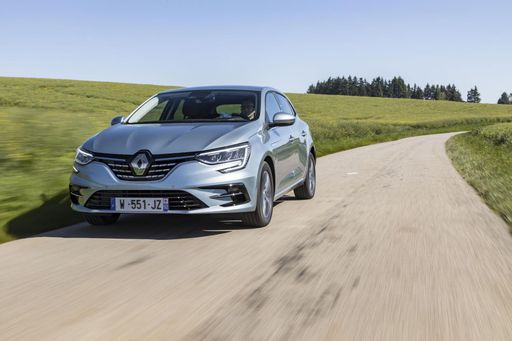 @ Renault Group Media
@ Renault Group Media
Renault Mégane
Costs and Consumption
View detailed analysis
Engine and Performance
View detailed analysis
Dimensions and Body
View detailed analysis
Renault Mégane
The Renault Mégane blends Gallic flair with practical everyday charm, showing that sensible transport can still have personality and poise. It’s a smart pick for buyers who want a comfortable, stylish hatchback that feels a little more special than the usual commute companion.
details @ Renault Group Media
@ Renault Group Media
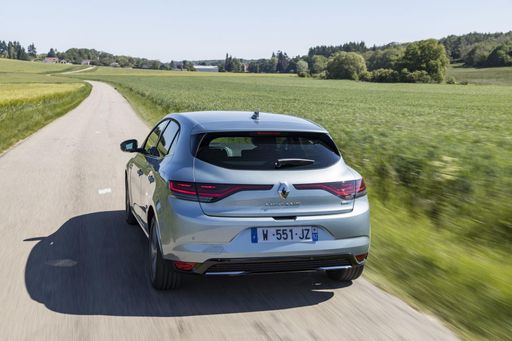 @ Renault Group Media
@ Renault Group Media
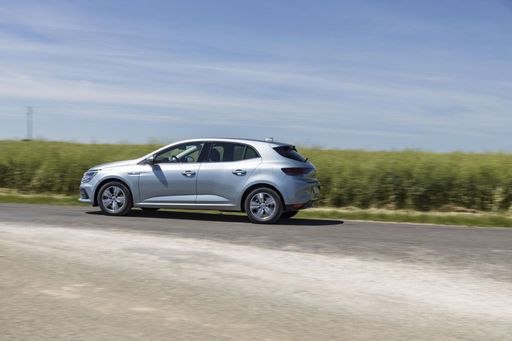 @ Renault Group Media
@ Renault Group Media
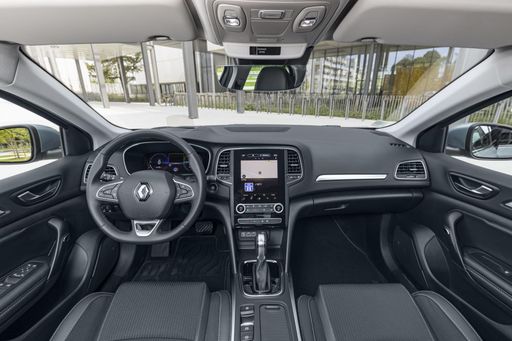 @ Renault Group Media
@ Renault Group Media
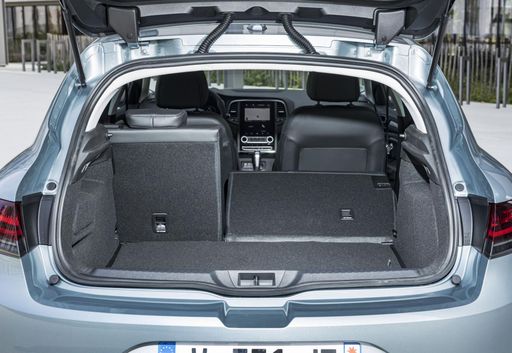 @ Renault Group Media
@ Renault Group Media
Toyota Prius
The Prius glides through traffic like a wise commuter's secret weapon, balancing miserly running costs with an unflappable sense of reliability. It's not a thrill seeker, but its roomy cabin, sensible packaging and low-stress driving personality make it a brilliant choice for buyers who value peace of mind over pulse-raising performance.
details @ Toyota Motor Corporation
@ Toyota Motor Corporation
 @ Toyota Motor Corporation
@ Toyota Motor Corporation
 @ Toyota Motor Corporation
@ Toyota Motor Corporation
 @ Toyota Motor Corporation
@ Toyota Motor Corporation
 @ Renault Group Media
@ Renault Group Media
|
 @ Toyota Motor Corporation
@ Toyota Motor Corporation
|
|
|
|
Costs and Consumption |
|
|---|---|
|
Price
35100 - 38500 £
|
Price
39400 - 45800 £
|
|
Consumption L/100km
-
|
Consumption L/100km
0.5 - 0.7 L
|
|
Consumption kWh/100km
15.40 kWh
|
Consumption kWh/100km
-
|
|
Electric Range
452 km
|
Electric Range
72 - 86 km
|
|
Battery Capacity
-
|
Battery Capacity
-
|
|
co2
0 g/km
|
co2
12 - 17 g/km
|
|
Fuel tank capacity
-
|
Fuel tank capacity
40 L
|
Dimensions and Body |
|
|---|---|
|
Body Type
SUV
|
Body Type
Hatchback
|
|
Seats
5
|
Seats
5
|
|
Doors
5
|
Doors
5
|
|
Curb weight
1719 kg
|
Curb weight
1620 - 1630 kg
|
|
Trunk capacity
389 L
|
Trunk capacity
284 L
|
|
Length
4200 mm
|
Length
4599 mm
|
|
Width
1783 mm
|
Width
1782 mm
|
|
Height
1505 mm
|
Height
1470 mm
|
|
Max trunk capacity
1332 L
|
Max trunk capacity
-
|
|
Payload
446 kg
|
Payload
365 - 375 kg
|
Engine and Performance |
|
|---|---|
|
Engine Type
Electric
|
Engine Type
Plugin Hybrid
|
|
Transmission
Automatic
|
Transmission
Automatic
|
|
Transmission Detail
Reduction Gearbox
|
Transmission Detail
CVT
|
|
Drive Type
Front-Wheel Drive
|
Drive Type
Front-Wheel Drive
|
|
Power HP
218 HP
|
Power HP
223 HP
|
|
Acceleration 0-100km/h
7.40 s
|
Acceleration 0-100km/h
6.80 s
|
|
Max Speed
160 km/h
|
Max Speed
177 km/h
|
|
Torque
300 Nm
|
Torque
-
|
|
Number of Cylinders
-
|
Number of Cylinders
4
|
|
Power kW
160 kW
|
Power kW
164 kW
|
|
Engine capacity
-
|
Engine capacity
1998 cm3
|
General |
|
|---|---|
|
Model Year
2025
|
Model Year
2023
|
|
CO2 Efficiency Class
A
|
CO2 Efficiency Class
B
|
|
Brand
Renault
|
Brand
Toyota
|
What drive types are available for the Renault Mégane?
Available configurations include Front-Wheel Drive.
The prices and data displayed are estimates based on German list prices and may vary by country. This information is not legally binding.
